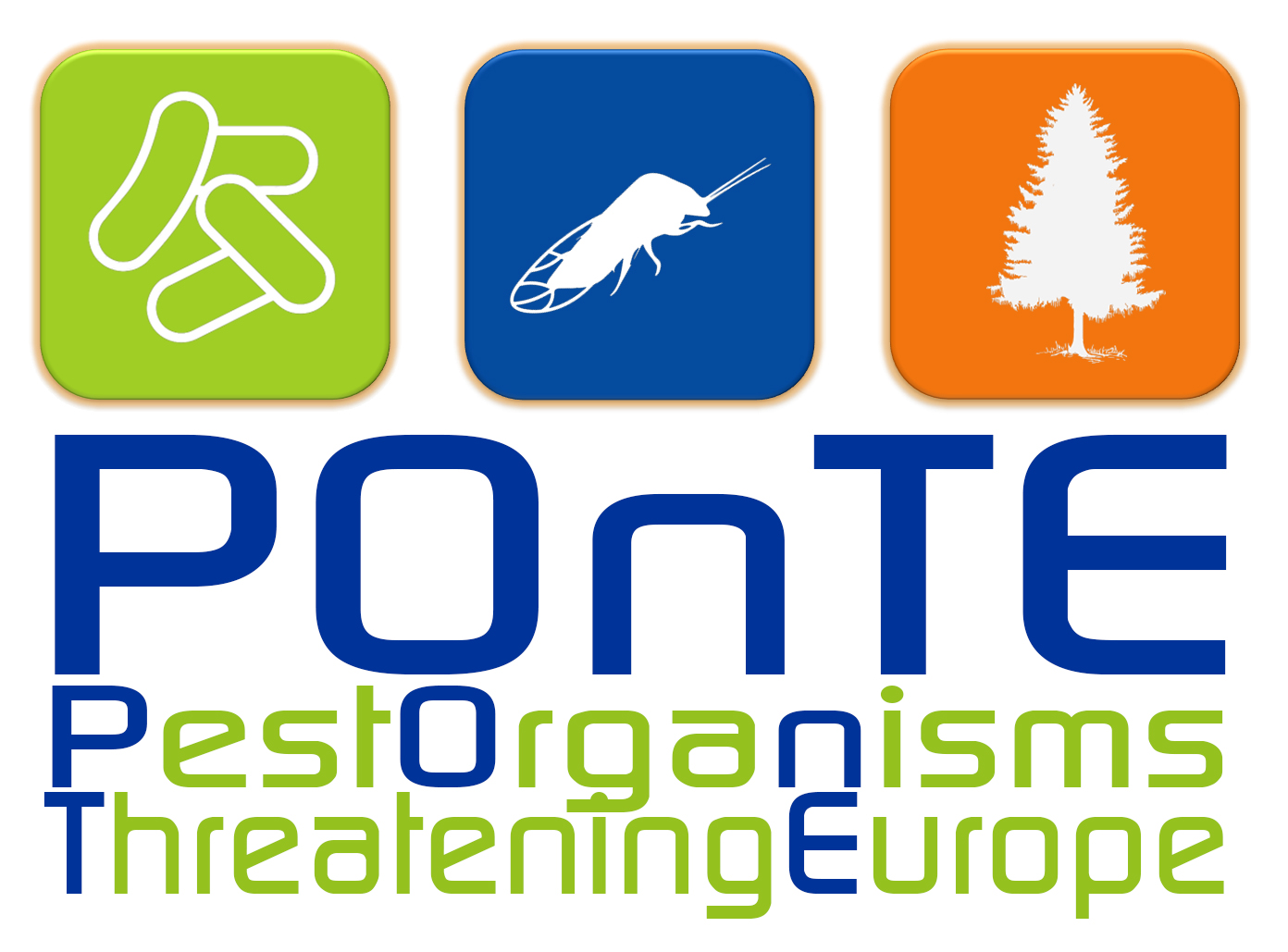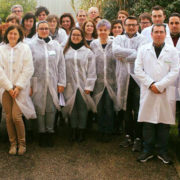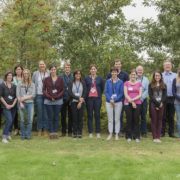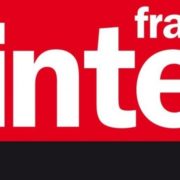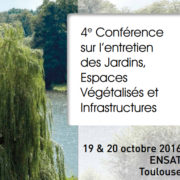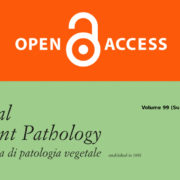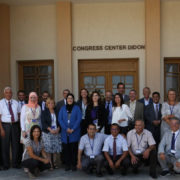The successful training workshop on the diagnosis of Xylella fastidiosa and identification of insect vectors held in Locorotondo
A technical workshop on the diagnosis of Xylella fastidiosa and identification of insect vectors, jointly organized by the POnTE and XF-ACTORS projects, was held at CRSFA- Basile Caramia in Locorotondo (Bari), Italy, from 20 to 23 February 2018.
The training event hosted 16 Italian trainees, coming from the official/accredited laboratories of several Regional Plant Health Services, for a 3-day laboratory session and a 1-day field session program.
With the objective of building capacity and laboratory skills for the correct application of the diagnostic protocol for Xylella fastidiosa and for the identification of insect vectors, the sessions of the workshop covered the following tasks:
- sample preparation and detection methods in relation to the host plants
- methods for sampling and testing plant materials in the nurseries
- techniques for sampling and identification of vectors
- comparative analysis of the performance of different approaches
The 16 participants were tutored in the laboratory by a team of experienced tutors and laboratory assistants, belonging to different scientific institutions: CNR-IPSP, Bari, Italy; DiSSPA-University of Bari, Italy; CIHEAM-IAMB, Valenzano, Italy and CRSFA Basile Caramia, Locorotondo, Italy.
On the opening day, Dr. Donato Boscia (CNR-IPSP), Coordinator of the POnTE Project, introduced the Xylella fastidiosa current situation in Europe to the audience; Dr. Giuliana Loconsole (DiSSPA-UNIBA) described the whole laboratory sessions program; Dr. Vincenzo Cavalieri (CNR-IPSP) and Dr. Enza Dongiovanni (CRSFA) presented methods for sampling and identification of insect vectors; Dr. Franco Valentini (CIHEAM-IAMB) described the current procedures for monitoring the Xylella fastidiosa spread in Apulia and Dr. Franco Santoro (CIHEAM-IAMB) introduced the ITC devices developed to support these monitoring surveys.
Dr. Maria Saponari assisted by Dr. Giuseppe Altamura (CNR-IPSP) led the session on Xylella fastidiosa isolation and cultivation; Dr. Oriana Potere (DiSSPA-UNIBA) and Dr. Khaled Djelouah (CIHEAM-IAMB) demonstrated the use of the serological methods (ELISA and DTBIA), with the collaboration of Dr. Donato Lorusso, Dr. Paola Pollastro and Dr. Maria Rosaria Silletti (CRSFA). Significant efforts were put in the demonstration of the molecular methods and sample preparations: Dr. Giuliana Loconsole led the activities, assisted by Dr. Raied Abou Kubaa (CNR-IPSP), Dr. Maria Rosaria Silletti and Dr. Francesco Palmisano (CRSFA).
Methods for the identification of different species of insect vectors were shown by Dr. Vincenzo Cavalieri (CNR-IPSP).
The closing laboratory session and discussion of the results were conducted by Dr. Giuliana Loconsole, Dr. Oriana Potere and Dr. Maria Saponari. Participant comments and final questions were effectively addressed by all the tutors.
The field session was guided by Dr. Donato Boscia (CNR-IPSP), Dr. Franco Valentini (CHIEAM-IAMB), and Dr. Angelo Delle Donne (Plant Health Service of the Regione Puglia), who described the 4-year development of the Xylella fastidiosa outbreak in Apulia, and introduced the participants to the ongoing experimental trials to study the Xylella fastidiosa resistances in 270 olive tree cultivars collected all around the world.
The high relevance of the social and economic damages caused by the Xylella fastidiosa outbreak in Apulia was explained by Federico Manni and Enzo Manni, of the Cooperative Acli Racale, a stakeholder partner of the POnTE project and financial supporter of the field day.
Financial support for the organization of the laboratory sessions and for the serological reagents came from Agritest srl, Valenzano, Italy within the framework of the project POnTE. The reagents for the LAMP assays were provided by Enbiotech Srl within the framework of the project XF-ACTORS.
